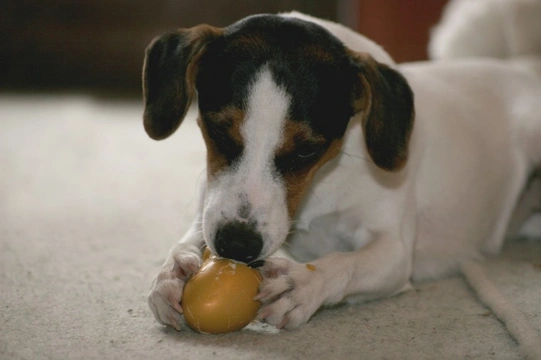
How to ensure your dog doesn’t eat chocolate this Easter
Easter time is one of the riskier times of year for dogs when it comes to potential chocolate poisoning, and three of five general veterinary clinics working normal hours treat at least one dog for chocolate poisoning at this time of year.
Save yourself a costly trip to the vet by ensuring your dog doesn’t eat chocolate at Easter in the first place; this article will give you some tips to get you going. Read on to learn more.
Don’t let your dog out into the garden if you’ve hidden eggs
Easter egg hunts are great fun for children and allow parents to feel as if they’ve at least got the children running around for half an hour before they start gorging on eggs, but dogs too would also very much enjoy an Easter egg hunt where they get to eat the spoils; and they’re likely to be really good at this too.
Dogs have a highly acute sense of smell and usually no common sense where food is concerned, and this means that Easter egg hunts and dogs do not mix.
Don’t let your dog out into the garden if you have hidden chocolate eggs; placing them in dog-proof containers or out of your dog’s reach is a good idea too, but to be doubly safe, wait until the eggs have been removed before you let you dog back out.
Keep track of all Easter eggs with military-grade accuracy!
If you’re not sure how many eggs are around in your home or where they’ve all got to, this means two things; it will be easier for your dog to find and get hold of an egg without anyone noticing and also, that you might not even realise that your dog ate an Easter egg if you don’t notice one missing.
This means the first indication you do get is if the egg makes your dog ill, by which time treating the problem is much harder.
Keep track of all Easter eggs; how many there are, who has them, where they’re kept, and when you can cross them off the list as eaten (by the right person)!
Prime your kids on keeping their chocolate out of the dog’s reach
Children really need to understand the importance of not letting your dog share their Easter eggs, and for children that are too young to understand this or that dogs simply take food from, this means that they need to be supervised at all times.
Many children think it is unfair that the dog isn’t getting any chocolate and might try to secretly share anyway even if they have been told not to, so make sure the kids know that this can actually hurt the dog.
Remember that chocolate is not only found in Easter eggs
Easter eggs are almost always made of chocolate, and this and the fact they’re so numerous is what makes Easter eggs themselves the greatest risk to dogs at Easter. But chocolate isn’t just in Easter eggs; many of us make cornflake cakes with chocolate to look like nests, and enjoy a wide range of other Easter sweet treats too that often contain or are decorated with chocolate.
Other Easter foods can be dangerous to dogs too
Even Easter sweets that are not chocolate based aren’t usually safe for dogs either! This includes things like hot cross buns and Simnel cake, both of which contain raisins and sultanas and these too are toxic to dogs.
Even Easter roast dinners often have garlic or onion in them, which are toxic to dogs, and cooked meat bones can splinter and cause harm to your dog too.
Secure your bins properly
Being vigilant about making sure you know what Easter foods are dangerous to dogs and ensuring that you don’t accidentally feed your dog any of them – and that you make sure your children get the message too – is vital.
But all of this vigilance and effort will be wasted if your bin is easy pickings! Generally, we know if our dogs tend to target the bin and secure it accordingly, but at times when we have more food than normal and bank holidays mean that bin emptying dates might change, it can be easier for dogs to get to the bin, or find food left on top of or near to bins, so bear this in mind.
Walk your dog on the lead
Easter egg hunts in parks and generally chocolate and food discarded in parks; plus other people’s overflowing bins in the streets – can all pose a hazard for scavenging dogs when you take them for their walks. If necessary, walk your dog on a lead and/or with a muzzle on just for the day itself, to prevent your dog eating discarded Easter food.
Pay attention if your dog suddenly goes quiet or is eating something mysterious
Finally, if your dog suddenly goes quiet, this is rarely a good sign; check they’re not eating something they shouldn’t be, and never ignore it if they have something in their mouth and you’re not sure what.



